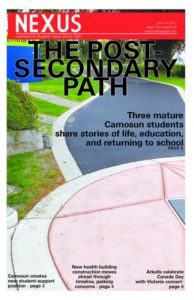The Central Student Association student group at Ontario’s University of Guelph recently found themselves in the spotlight over an apology they issued for playing a transphobic song at an event on campus.
The problem is, the song’s not transphobic.

The cut in question is Lou Reed’s 1972 classic “Walk on the Wild Side.” Several students complained about the song’s allegedly inappropriate lyrics (an example: “Hitch-hiked her way across the USA/Plucked her eyebrows on the way/Shaved her legs and then he was a she/She said, ‘Hey, babe, take a walk on the wild side’”).
I don’t believe that it is accurate, nor is it fair, to label the late Lou Reed or this song as transphobic. The lyrics do not indicate transphobia, and Reed once dated Rachel Humphries, who was a trans woman.
Calling Reed’s lyrics transphobic would be like calling The Beatles warmongers because they sang about war; it is absurd. “Walk on the Wild Side” was released at a time when the LGBT community was oppressed and looked down upon; in fact, this song actually helped raise awareness about the topic, introducing trans issues to the mainstream.
Instead of condemning the use of this song at their event, the Central Student Association should have clarified that the song has no transphobic undertones, and just because it mentions trans issues doesn’t mean that the portrayal was meant to be negative.
PC culture has been in the news a lot lately. I believe it’s good when looked at in the grand scheme of things, and I believe that we should all strive to not be assholes to each other and to respect everyone equally in our day-to-day lives.
It’s true, however, that when PC culture is taken to the extreme, it can lead to decisions that distort the reality of the situation. It can cause us to go after fake homophobes/racists/sexists—people whom we view as those things but who actually aren’t. It’s a witch hunt.
When we falsely accuse a person of being hateful or bigoted, the real bigots just revel in it and crack up at our stupidity. I’m completely against transphobia, but we can’t just go around calling people transphobic when all available evidence says otherwise, or because they were courageous enough to talk about trans issues in a song in 1972.
